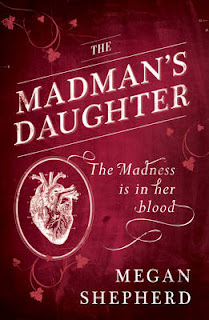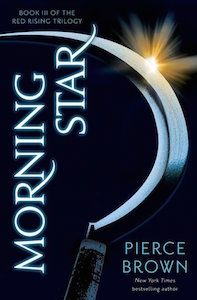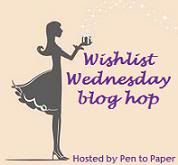Yesterday I posted my review of the fantastically strange and twisted The Madman's Daughter by Megan Shepherd. I really enjoyed the book, and I'm definitely interested to see where the story will go in the next books. So this got me wondering ... if this first book is based on The Island of Dr Moreau, what, if anything, are the other books going to be based on? What interesting new turns will the story take?
So when I was asked by the wonderful people at HarperVoyager if I would like to feature Megan on the blog, I leapt at the opportunity to ask her what inspired The Madman's Daughter and it's sequels, and she has responded with something both interesting and very exciting! So I will now leave you in her capable hands!
What Inspired Me to Write the Madman’s Daughter Series
"Though The Madman’s Daughter is a reimagining of the classic novel The Island of Doctor Moreau by HG Wells, it was actually first inspired by a TV show. When the show Lost was on the air, the setting of a mysterious island fascinated me, and since I was re-reading a few classics at the time, I remembered The Island of Doctor Moreau. I got the idea to reframe the story from a new character’s perspective, and loved imagining what the mad scientist’s daughter would be like.
When I finished the book, I queried it to agents as a stand-alone. It’s common advice debut authors are given; it’s much easier to sell one book than two or three or four, so stick with single titles. However, the ending is left a bit open, and when my agent read it he felt that it had strong potential to be expanded into a trilogy. I was thrilled at the idea of continuing the story, but also stumped: if the first book reimagines and concludes the story of Doctor Moreau, how will the next two continue?
The answer came to be quite naturally, in fact. At the end of the first book (without giving away any spoilers) we learn that lots of characters are hiding secrets, and that in at least one case, this secret involves a person with both a dark and a light side. I realized this was somewhat similar to The Strange Case of Doctor Jekyll and Mister Hyde, and that I could continue my same characters’ story, but drawing inspiration from a new classic this time. Similarly, the third book draws inspiration from Frankenstein. In this way, each book is a little different in its relationship with its inspiration: the first book is an alternate perspective to The Island of Doctor Moreau, the second book involves events that might have fictionally inspired Stevenson to write The Strange Case of Doctor Jekyll and Mister Hyde, and the third book is speculation about the legacy of Dr. Frankenstein.
I chose these three classics not only because they fit well with the storyline I already had established, but because they share a crucial theme: scientific hubris. In all these stories, ambitious men are using science to play god. In one case they’re creating men out of animals, in another separating a man’s personality, and in the last, defeating death. Though the science is different—vivisection, chemistry, galvanism—their aims are the same. I also liked the idea of exploring these traditionally “masculine” themes (at least in the Victorian era) through a woman’s eyes. My aim was to revisit these classic themes from a fresh perspective, so that readers would realize how timeless many of these themes are."
When I finished the book, I queried it to agents as a stand-alone. It’s common advice debut authors are given; it’s much easier to sell one book than two or three or four, so stick with single titles. However, the ending is left a bit open, and when my agent read it he felt that it had strong potential to be expanded into a trilogy. I was thrilled at the idea of continuing the story, but also stumped: if the first book reimagines and concludes the story of Doctor Moreau, how will the next two continue?
The answer came to be quite naturally, in fact. At the end of the first book (without giving away any spoilers) we learn that lots of characters are hiding secrets, and that in at least one case, this secret involves a person with both a dark and a light side. I realized this was somewhat similar to The Strange Case of Doctor Jekyll and Mister Hyde, and that I could continue my same characters’ story, but drawing inspiration from a new classic this time. Similarly, the third book draws inspiration from Frankenstein. In this way, each book is a little different in its relationship with its inspiration: the first book is an alternate perspective to The Island of Doctor Moreau, the second book involves events that might have fictionally inspired Stevenson to write The Strange Case of Doctor Jekyll and Mister Hyde, and the third book is speculation about the legacy of Dr. Frankenstein.
I chose these three classics not only because they fit well with the storyline I already had established, but because they share a crucial theme: scientific hubris. In all these stories, ambitious men are using science to play god. In one case they’re creating men out of animals, in another separating a man’s personality, and in the last, defeating death. Though the science is different—vivisection, chemistry, galvanism—their aims are the same. I also liked the idea of exploring these traditionally “masculine” themes (at least in the Victorian era) through a woman’s eyes. My aim was to revisit these classic themes from a fresh perspective, so that readers would realize how timeless many of these themes are."




















1 comments:
Universal Web Design has a broad portfolio of clients, and this includes organisations in both the private and public sectors, that sell B2B or B2C, offering products or services.
Post a Comment
Thank you for taking the time to comment on my blog - it is always appreciated!